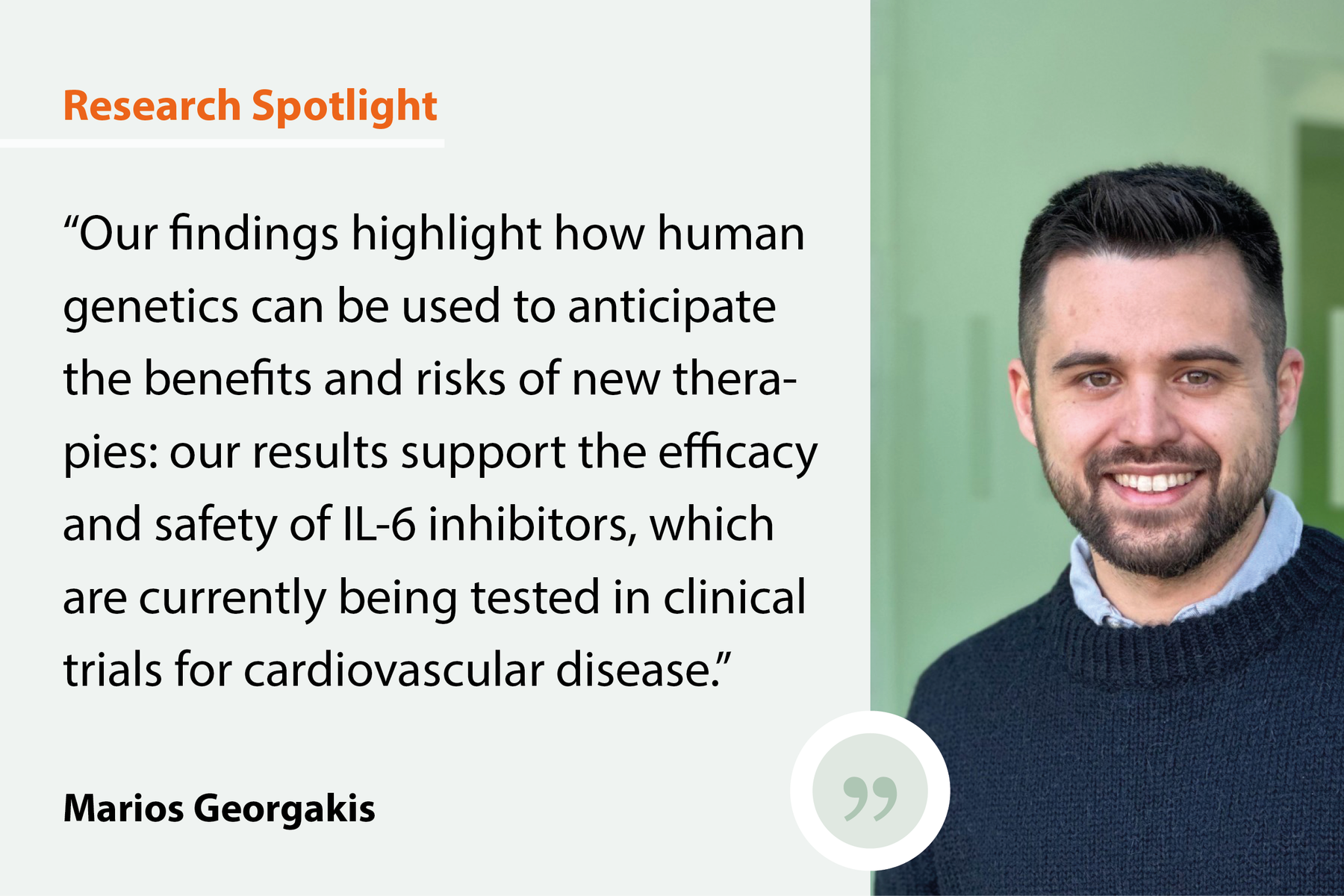Dies ist eine Zusammenfassung von Zhang, L., Omarov, M., Xu, L., deGoma, E., Natarajan, P. & M. Georgakis: IL6 genetic perturbation mimicking IL-6 inhibition is associated with lower cardiometabolic risk. Veröffentlicht in Nature Cardiovascular Research 2025. https://doi.org/10.1038/s44161-025-00700-7
The challenge
Atherosclerotic cardiovascular disease is the leading cause of death worldwide. Inflammation has recently become a new therapeutic target, with the first anti-inflammatory drug for lowering the disease risk being approved. Therapies that target interleukin 6 (IL-6) signaling, a key inflammatory pathway, have lately received more attention due to a possible role in atherosclerosis. Previous genetic studies provided robust evidence that variants in the IL6R gene, which encodes not IL-6 itself but the corresponding receptor are associated with cardiovascular risk opening the way for drug development programs targeting IL-6 signaling. Whether these findings would translate to under-development drugs that directly inhibit IL-6 remained unclear. We therefore aimed to leverage variation in the gene encoding IL-6 that is the target of these therapies.
Our approach
We used large-scale human genetic analyses to detect variants that mimic the effects of drugs that block IL-6: we analyzed genetic data from over half a million people of European and East Asian ancestry. We specifically searched for genetic variants in the locus of the gene encoding IL-6 that are associated with downregulation of IL-6 signaling. To find these, we used serum C-reactive protein (CRP) levels, a well-established biomarker of IL-6 signaling activity.
Our findings
We found that individuals carrying variants in the IL6 gene linked to lower IL-6 signaling had a reduced lifetime risk of coronary heart disease, stroke, and peripheral artery disease. Strikingly, these variants were also associated with a lower risk of pneumonia and sepsis – countering fears that blocking IL-6 might impair the body’s ability to fight infections.
The implications
Our findings highlight how human genetics can be used to anticipate the benefits and risks of new therapies: our results support the efficacy and safety of IL-6 inhibitors, which are currently being tested in clinical trials for cardiovascular disease. The genetic evidence also indicated a possible reduced type 2 diabetes risk and improved lipid profiles, suggesting wider metabolic benefits.
Creating SyNergies
The study was led by our member Marios Georgakis. The methods developed and applied in this work will enable future SyNergy projects to leverage the same platform for human genetic validation of promising targets, accelerating their path toward clinical translation.

